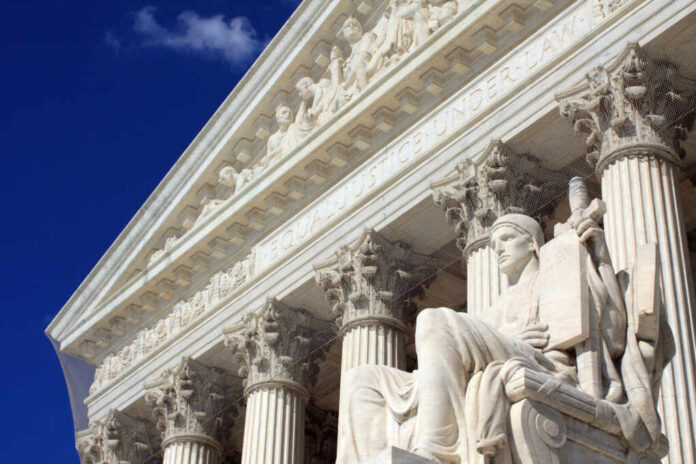
On Monday, Supreme Court Justice Samuel Alito put an indefinite hold on Texas’ Senate Bill 4, a groundbreaking state law designed to empower police with the authority to arrest migrants suspected of illegally entering the U.S. This law, proposed and signed by Texas Gov. Greg Abbott (R), was initially put in place to address what the state government declared an invasion at its common border with Mexico.
Designed to mirror federal immigration law currently being ignored by the Biden administration, the Texas act sparked a heated legal showdown with Biden’s Department of Justice. Texas Attorney General Ken Paxton said the law directly responded to the federal government’s failure to adequately secure the border. Dozens of Republican governors have supported Abbott’s tough stance on illegal immigration.
The Supreme Court’s decision to halt enforcement of the new law has added another layer of complexity to the debate. Critics of Senate Bill 4 have compared it to Arizona’s controversial immigration law over a decade ago, some of which were nullified by the Supreme Court. The Biden administration, suing to strike down Texas’ law, argues that it oversteps state authority, intruding into a domain exclusively delegated to the federal government.
BREAKING: Supreme Court extends block on Texas law that would allow police to arrest migrants https://t.co/MpPflW3Its
— The Associated Press (@AP) March 18, 2024
Alito’s action on Monday leaves the current order of U.S. District Judge David Ezra regarding the new law in place. Ezra rejected the claim by Texas that the surge of illegal migrants at the border constitutes an “invasion” as defined in the law. His ruling provided: “Even accepting that some small number of immigrants do traffic drugs or have cartel affiliations, Texas cannot genuinely maintain that noncitizens crossing the border are an organized military force aimed at conquest or plunder.”
Texas immediately initiated an appeal of Erza’s decision, stating, “We will not back down in our fight to protect our state — and our nation — from President Biden’s border crisis.” It remains unclear when the Supreme Court will issue a definitive final ruling on the appeal.
Opponents of the Texas law have raised concerns about potential civil rights infringements and racial profiling. At the same time, supporters argue it’s essential for maintaining state security and managing the border effectively. The Department of Justice claims the Texas measure disrupts international relations and creates “unnecessary chaos” in the administration of immigration laws.
Moreover, this legal struggle between Texas and the Biden administration exemplifies the broader ideological clash over immigration policy, which has long divided the nation. Conservatives argue that the federal government’s stance suggests a leniency toward border security that undermines national safety and sovereignty.
However, the central question remains whether states can enforce their borders against trespassers and invaders in the face of federal inaction. As the nation moves closer to the 2024 presidential election, this issue will undoubtedly remain at the forefront of political debate.

























